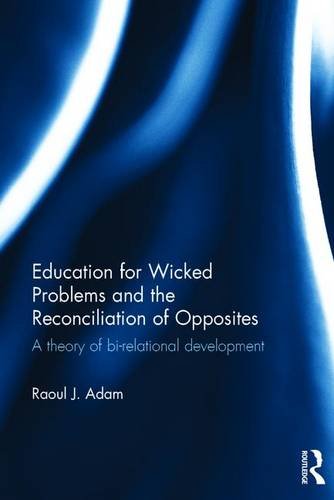

Most ebook files are in PDF format, so you can easily read them using various software such as Foxit Reader or directly on the Google Chrome browser.
Some ebook files are released by publishers in other formats such as .awz, .mobi, .epub, .fb2, etc. You may need to install specific software to read these formats on mobile/PC, such as Calibre.
Please read the tutorial at this link: https://ebookbell.com/faq
We offer FREE conversion to the popular formats you request; however, this may take some time. Therefore, right after payment, please email us, and we will try to provide the service as quickly as possible.
For some exceptional file formats or broken links (if any), please refrain from opening any disputes. Instead, email us first, and we will try to assist within a maximum of 6 hours.
EbookBell Team

4.8
104 reviewsThe recognition and reconciliation of ‘opposites’ lies at the heart of our most personal and global problems and is arguably one of the most neglected developmental tasks of Western education. Such problems are ‘wicked’ in the sense that they involve real-life decisions that have to be made in rapidly changing contexts involving irreducible tensions and paradoxes. By exploring our human tendency to bifurcate the universe, Education for Wicked Problems & the Reconciliation of Opposites proposes a way to recognise and (re)solve some of our most wicked problems.
Applying an original theory of bi-relational development to wicked problems, Adam proposes that our everyday ways of knowing and being can be powerfully located and understood in terms of the creation, emergence, opposition, convergence, collapse and trans-position of dyadic constituents such as nature/culture, conservative/liberal and spirit/matter. He uses this approach to frame key debates in and across domains of knowledge and to offer new perspectives on three of the most profound and related problems of the twenty-first century: globalisation, sustainability and secularisation.
This book is a comprehensive study of dyads and dyadic relationships and provides a multidisciplinary and original approach to human development in the face of wicked problems. It will be of great interest to students and academics in education and psychosocial development as well as professionals across a range of fields looking for new ways to recognise and (re)solve the wicked problems that characterise their professions.